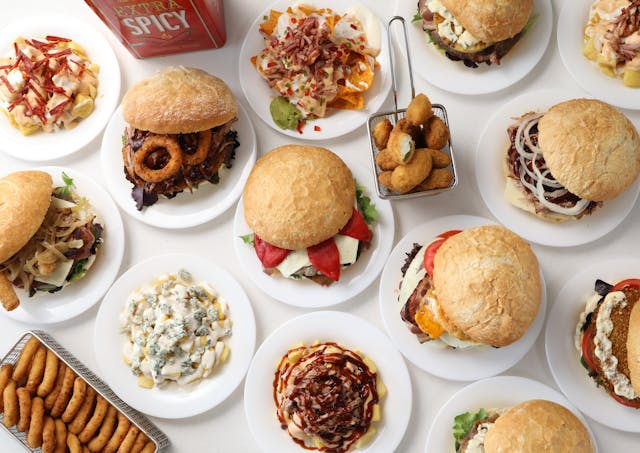Your gut health is the foundation of your overall well-being. As a nutritionist, I have seen firsthand the damage that certain foods can inflict on the digestive system, leading to chronic inflammation, nutrient malabsorption, and even long-term health conditions. Many people unknowingly consume foods that disrupt their gut microbiome and trigger digestive distress, and the consequences can be severe.
If you experience bloating, indigestion, irregular bowel movements, fatigue, or skin problems, your diet may be harming your gut more than you realize. Below are four common food groups that are notorious for damaging gut health, along with steps to protect yourself from their harmful effects.
1. Processed and Fried Foods – The Silent Gut Destroyers
Highly processed and fried foods are among the worst offenders when it comes to gut health. Laden with artificial additives, unhealthy fats, and excessive sodium, these foods fuel the growth of harmful bacteria while starving the beneficial ones that keep your digestive system balanced.
Why They Are Dangerous:
- Contain preservatives and artificial sweeteners that disrupt the gut microbiome.
- High in trans fats, which contribute to gut inflammation and damage the intestinal lining.
- Loaded with refined carbohydrates and sugars that feed harmful bacteria, causing imbalances and increasing the risk of gut infections.
How to Protect Your Gut:
- Avoid fast food, packaged snacks, and deep-fried meals.
- Focus on whole, nutrient-dense foods like vegetables, lean proteins, and whole grains.
- Cook with healthy fats such as olive oil or avocado oil instead of using refined vegetable oils.
2. Dairy Products – A Hidden Trigger for Digestive Distress
Many people consume dairy daily without realizing it could be causing their bloating, gas, or stomach discomfort. Lactose intolerance affects a significant percentage of the population, and even those who are not intolerant may experience adverse gut reactions to casein, the primary protein in milk.
Why Dairy Is Problematic:
- Lactose (milk sugar) is difficult for many people to digest, leading to fermentation in the gut and uncomfortable symptoms.
- Dairy can trigger inflammation, especially for individuals with dairy sensitivities or autoimmune conditions.
- Conventional dairy products often contain antibiotics and hormones that disrupt gut bacteria.
How to Protect Your Gut:
- Opt for lactose-free dairy or plant-based alternatives like almond, coconut, or oat milk.
- Consume fermented dairy products like kefir or yogurt with live probiotics to support gut health.
- Monitor your body’s reaction to dairy and consider eliminating it if you experience digestive distress.
3. Gluten-Containing Grains – More Harmful Than You Think
Gluten is a protein found in wheat, barley, and rye. While some people tolerate gluten well, many suffer from gluten sensitivity without even realizing it. For those with celiac disease or non-celiac gluten sensitivity, gluten can cause significant damage to the intestinal lining and lead to serious health issues.
Why Gluten Can Be Harmful:
- Gluten can increase intestinal permeability (also known as “leaky gut”), allowing toxins and undigested food particles to enter the bloodstream and trigger immune responses.
- Can cause digestive symptoms like bloating, diarrhea, and constipation in sensitive individuals.
- Linked to inflammation and autoimmune conditions, making it especially problematic for those with chronic health issues.
How to Protect Your Gut:
- Replace refined wheat products with gluten-free options like quinoa, brown rice, and buckwheat.
- Read ingredient labels carefully to avoid hidden sources of gluten in processed foods.
- Work with a healthcare professional to determine if gluten elimination is right for you.
4. Sugary and Artificially Sweetened Foods – A Gut Health Nightmare
Sugar is one of the most damaging substances for gut health, and artificial sweeteners are no better. Excess sugar feeds harmful bacteria and yeast, leading to dysbiosis (microbial imbalance), inflammation, and digestive discomfort.
Why Sugar and Artificial Sweeteners Are Dangerous:
- High sugar intake promotes the growth of harmful gut bacteria and fungi like Candida, leading to digestive issues and weakened immunity.
- Artificial sweeteners (such as aspartame, sucralose, and saccharin) can alter the gut microbiome and negatively impact metabolism.
- Can lead to insulin resistance and increase the risk of metabolic disorders like diabetes and obesity.
How to Protect Your Gut:
- Reduce your intake of processed sugars and avoid artificial sweeteners altogether.
- Choose natural sweeteners like raw honey, maple syrup, or stevia in moderation.
- Prioritize whole, fiber-rich foods to naturally satisfy your sweet cravings while supporting gut-friendly bacteria.
Your gut health is too important to ignore. By avoiding processed and fried foods, dairy products (if sensitive), gluten-containing grains, and excessive sugar or artificial sweeteners, you can protect your digestive system and overall well-being.
If you frequently experience digestive discomfort, fatigue, or unexplained health issues, consider evaluating your diet and making necessary changes. Small adjustments in your eating habits can lead to significant improvements in gut health, energy levels, and overall vitality.
If you suspect a food sensitivity or gut imbalance, consult a healthcare professional or nutritionist for personalized guidance. Taking proactive steps today can help safeguard your gut for a healthier tomorrow.


